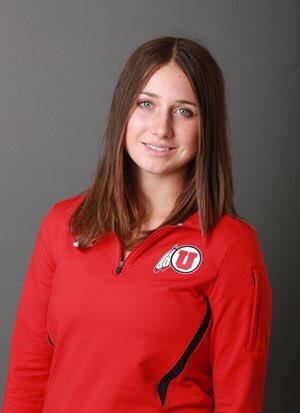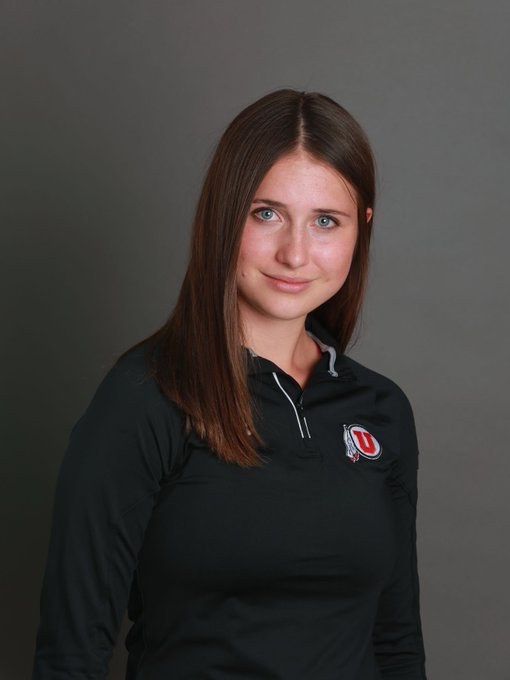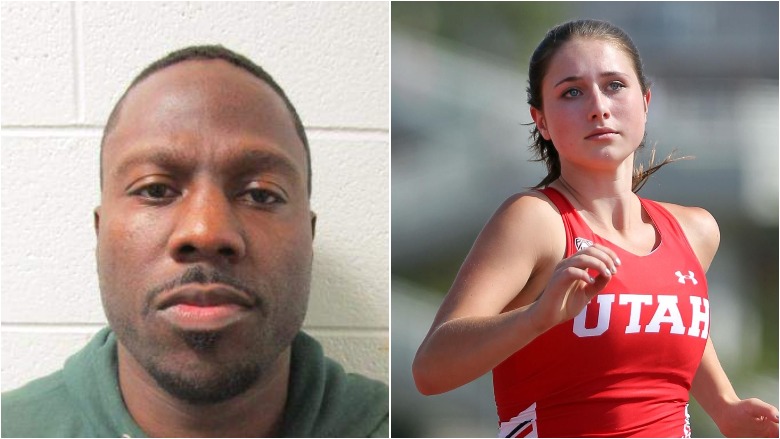
Melvin Rowland, the registered sex offender accused of shooting a female student to death in a car on the University of Utah campus, lied to the victim about his criminal history, her family says.
The horrific shooting – which occurred as Lauren McCluskey, 21, walked home from a night class at the University of Utah – has shaken the campus community, where McCluskey was a senior track standout who was majoring in communication. You can learn more about McCluskey here.
McCluskey’s family was given a $13.5 million settlement by the University of Utah in October 2020.
McCluskey’s family sued the University of Utah in federal court. The family initially demanded $56 million from the University of Utah, the court documents filed in June 2019 say. We’ve uploaded the full lawsuit here so you can read it. In the lawsuit, filed against the state, the university, its public safety and housing departments, and some individuals, the McCluskey family alleges “deliberate indifference and failure to intervene and prevent the tragic and untimely death of Lauren McCluskey.”
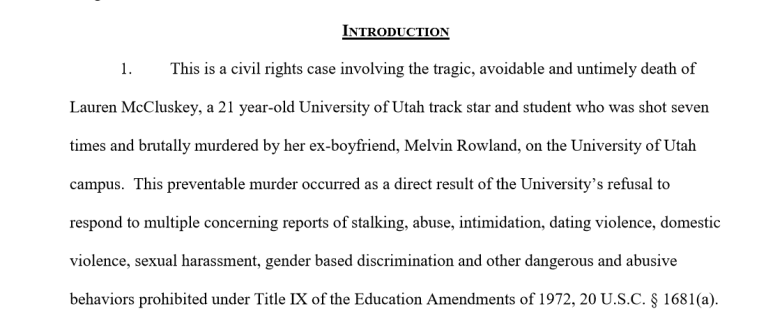
Part of the McCluskey lawsuit.
The lawsuit alleges: “This is a civil rights case involving the tragic, avoidable and untimely death of Lauren McCluskey, a 21-year-old University of Utah track star and student who was shot seven times and brutally murdered by her ex-boyfriend, Melvin Rowland, on the University of Utah campus. This preventable murder occurred as a direct result of the University’s refusal to respond to multiple concerning reports of stalking, abuse, intimidation, dating violence, domestic violence, sexual harassment, gender based discrimination, and other dangerous and abusive behaviors prohibited under Title IX.”
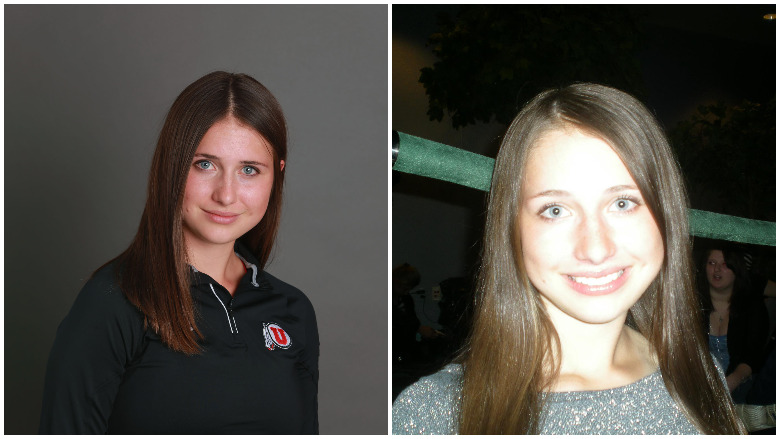
Facebook/U of ULauren McCluskey
911 audio now shows that McCluskey was worried about how long authorities were taking to investigate her harassment claims against Rowland.
The shooting death came almost a year after another University of Utah student was shot and killed. Police say Rowland and the victim had a “previous relationship.” However, McCluskey’s family says she ended the relationship after only a short period of time and was trying to get away from Rowland after learning about his background. However, he started harassing her, and she turned to police for help before the slaying. Rowland was found dead Tuesday morning after killing himself, authorities say.
Here’s what you need to know:
1. Rowland, a Registered Sex Offender Caught in an Online Sting, Left McCluskey’s Body Inside a Car, Police Say
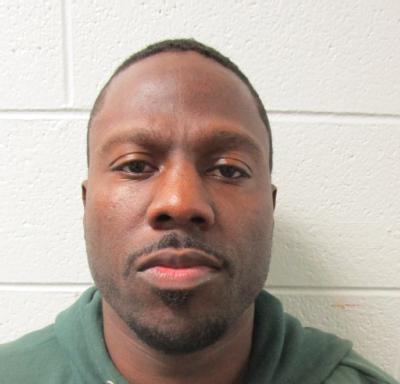
Melvin Rowland
When Melvin Rowland crossed paths with Lauren McCluskey, she wasn’t aware of the very disturbing crimes in his background, her mother said in the statement released to the news media. For starters, Rowland was a registered sex offender. The family lawsuit says the same: “Lauren started dating Melvin Rowland in September of 2018. He was a large, powerful and handsome man who was over 6 feet tall and weighed approximately 250 pounds. Lauren did not have much experience dating and at first, Melvin Rowland seemed attentive and respectful, but Lauren did not know that Melvin Rowland was lying about his name and age, among other things, to hide the fact that he was a dangerous felon and registered sex offender…As soon as Lauren discovered Melvin Rowland’s lies, his alarming secrets and his dangerous history, she ended her relationship with him.”
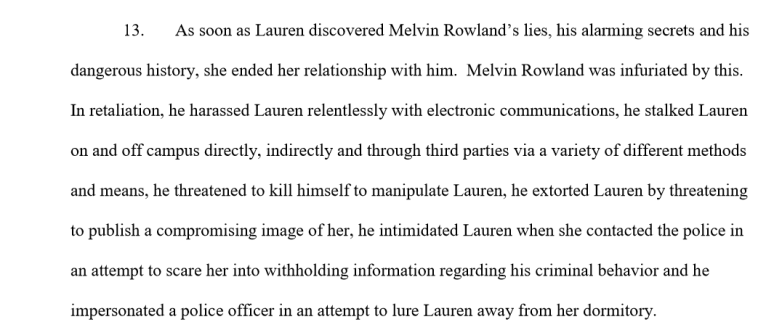
McCluskey lawsuit excerpt.
The lawsuit claims that “among other things Melvin Rowland was unabashedly jealous; he employed various tactics to control Lauren’s daily activities; he isolated Lauren from her friends and family; he stalked Lauren, monitoring her whereabouts and activities both on and off campus; he was profoundly narcissistic; he was chronic liar. Melvin Rowland became unemployed, relied on Lauren for food and shelter and gained access to a gun.”
The accused suspect Melvin Rowland is 37-years-old. You can see Rowland’s sex offender registry information here.
It gives the following details of his background:
• Description: 76-4-401 – ENTICING A MINOR/2ND DEGREE FELONY
• Date Convicted: 07/19/2004
• Conviction State: Utah
• Release Date: 09/03/2013
• Description: 76-5-404 – FORCIBLE SEXUAL ABUSE-ATTEMPTED/3RD DEGREE FELONY (attempted)
• Date Convicted: 07/19/2004
• Conviction State: Utah
The Salt Lake Tribune reports that the minor enticement case involved the Internet. The Associated Press spoke to the prosecutor in the above cases. He told AP that Rowland was arrested after a police officer “posed as a 13-year-old girl” online; later, a woman alleged Rowland raped her after meeting her online around the same time frame, AP reported.
There was an open investigation into Rowland at the time of McCluskey’s death; she had reported him to authorities for harassment, according to the university police chief, speaking in a news conference.
“We did have a case that was a police report filed on October 12 and the 13. There was some follow up. It was assigned out to a detective. The detective had been in contact with Miss McCluskey, and they were working to build a case against our suspect at that time,” said Chief Dale Brophy.
He added, “We’re not going to discuss the details of those cases at this point in time.”
Brophy continued, “We don’t have a correct address for him. He was a walk away from Fortitude, which is a halfway house here. Didn’t have a correct address for him at that particular time.”
He said that the way such cases work is that authorities take a police report after receiving a complaint, and then it’s forwarded to an investigator, who reaches out to the victim. He says that happened in this case.
Asked if the harassment was severe enough where the university police provided protection for McCluskey, he said, “I’m not going to divulge those details at this point in time.”
The university police chief said authorities would provide everything they have on the situation once the investigation is complete.
“We suspected it may be a boyfriend once we found out Miss McCluskey was deceased. We were able to identify who that boyfriend was and place him at the scene,” said Brophy.
“Our thoughts and prayers are going out to the parents of Miss McCluskey…I can’t even fathom what they are going through right now,” Brophy said.
According to Lori McDonald, the dean of students, “It is with tremendous sadness and a heavy heart that we are here today.”
“Lauren was an outstanding student scholar,” she said. “The trauma of last night’s event has clearly impacted our entire campus community.”
The university has now released a lengthy timeline of events in the case. It is as follows:
The following timeline is based on contacts University Police had with Lauren McCluskey as well as information gathered in the case since Monday and was shared at a press conference held Thursday, Oct. 25:
“Sept. 2: Lauren met Melvin Shawn Rowland at a local bar where he was working as a bouncer and began a relationship with him. He visited her often at her residence hall and built friendships with other students in the building.
Oct. 9: Lauren learned Rowland’s real identity—including his actual age and the fact that he was a registered sex offender. At that point she decided to end the relationship. She invited Rowland to her dorm room and confronted him with the information. He admitted his sex offender status but denied the age difference. Lauren told him she was ending the relationship. He spent the night in her room and borrowed her car the following day to run errands.
Oct. 10: Campus dispatch was contacted by Jill McCluskey, Lauren’s mother, who requested a campus security escort to help her daughter retrieve her vehicle from her ex-boyfriend.
University Police contacted Lauren and she initially declined the assistance, stating that Rowland was going to drop the vehicle at her apartment and she felt comfortable having him do that.
A dispatcher told Lauren she would have security officers near the building just in case and asked her to call back if the situation changed.
Oct. 10, 5 p.m.: Lauren called back and stated her car had been dropped off at the parking lot at Rice-Eccles Stadium and that she needed a ride to pick it up. A security escort responded and gave Lauren a ride to pick up her car.
Oct. 12: Lauren contacted University Police to report having received suspicious messages that she believed were from friends of her ex-boyfriend. The texts stated that Rowland was dead, and it was Lauren’s fault. She was able to determine by looking at social media that was untrue.
The reporting officer asked Lauren if she felt in danger or threatened by the texts. She stated she did not, but that she felt his friends were trying to lure her somewhere.
The officer told her to not go anywhere that made her uncomfortable and to call back if she received additional messages or contact.
Oct. 13, 9:22 a.m.: Lauren again contacted University Police to report receiving additional messages she believed were from her ex-boyfriend and/or her ex-boyfriend’s friends. The messages demanded money in exchange for not posting compromising photos of Lauren and Rowland on the internet. Lauren stated she sent $1000 to an account as demanded in hopes of keeping the photos private.
A report was taken, a criminal history was pulled and the case was assigned to a detective for follow up on possible sexual extortion charges.
Oct. 19: The formal investigation of the extortion charges began. A detective contacted Lauren to gather additional information about the extortion, to identify all suspects possibly involved and to seek an arrest warrant for Rowland and/or his acquaintances responsible for the alleged crime.
Oct. 19-22: Security video showed Rowland at various locations on campus.
Oct. 22, 10:39 a.m.: Lauren emailed police to report having received an additional text from a spoofed number claiming to be Deputy Chief Rick McLenon requesting she come to the police station. University Police now believe the text came from Rowland with the intent of getting Lauren to leave her dorm room.
Oct. 22, 3 p.m.-6 p.m.: Rowland spent the afternoon waiting for Lauren with some of her friends in the residence hall.
Oct. 22, 8:20 p.m.: Rowland confronted Lauren, who was on the phone with her mother, in a parking lot outside her residence hall. In the altercation, she dropped her cell phone and belongings. He dragged Lauren to a different spot in the parking lot where he forced her into the back seat of a car he had driven to campus. He shot her in the car multiple times.
Oct. 22, 8:23 p.m.: Dispatch received a call from Matt McCluskey, Lauren’s father, stating he believed his daughter was in trouble, relayed what her mother had heard on the phone, and requested that officers respond.
Oct 22, 8:32 p.m.: Police responded to the parking lot, located Lauren’s belongings and began searching her dorm, surrounding area and the parking lot. Additional resources were mobilized.
Oct. 22, 8:38 p.m.: Rowland was picked up by an acquaintance and leaves campus.
Oct. 22, 9:55 p.m.: During a search of the parking lot, police discovered Lauren’s body in the backseat of a vehicle.
Oct. 22, 9:56 p.m.: A secure-in-place alert was sent campus wide that stated there had been a shooting on campus.
Oct. 22, 10:09 p.m.: Alert sent with suspect information. Updates were sent approximately every 30 minutes reiterating the secure in place order.
Oct. 22, 11:46 p.m.: Alert sent lifting secure-in-place order after University Police determined suspect had left campus.
Oct. 23, 12:01 a.m.: Alert sent identifying shooting suspect as Melvin Rowland.
Oct. 23 12:46 a.m.: Salt Lake Police located Rowland and engaged in a foot pursuit. He entered Trinity A.M.E. Church, 239 Martin Luther King Jr. Blvd., and as police entered the church he shot himself.
Oct. 23, 1:47 a.m.: Alert sent saying Rowland had been located and is no longer a threat.
Additional Information:
Q. Where did Rowland get the gun used in the attack?
A. University Police have learned Rowland borrowed the gun from an acquaintance under false pretenses. The acquaintance is fully cooperating with law enforcement. According to the acquaintance, Rowland said he wanted to borrow the gun to teach his girlfriend how to shoot. It is not anticipated that any charges will be filed.
Q. Who picked up Rowland on Monday night after the shooting?
A. Rowland called a woman he had met on a dating site and asked her for a ride, saying he had just finished a workout at the U. She agreed and picked him up. They went to dinner at a local restaurant, drove by the state Capitol and then went to her home in downtown Salt Lake City where Rowland took a shower. She later dropped him off at a coffee shop downtown. Subsequently, she saw news reports about the shooting, recognized photos of Rowland and contacted police. The woman is fully cooperating with the investigation and it is not anticipated she will face charges.
Q. How did University Police identify Rowland as the suspect in the shooting and determine he had left campus afterward?
A. University security cameras recorded him in the parking lot outside the residence hall. Another video showed him getting into a vehicle that left campus. Police also had the information relayed by her parents.
Q. Why didn’t University Police contact Adult Probation & Parole on Oct. 13 after learning Rowland was a registered sex offender?
A. University Police were investigating what was understood at that time to be an extortion case and did not yet believe there was enough evidence to share with other law enforcement. The current investigative process is to gather evidence that supports the claim and then to make contact with a suspect. It’s during this phase that police would have reached out to AP&P.
Q. Why didn’t University police assist Lauren in getting a restraining order?
A. Rowland was threatening Lauren financially and reputationally, but there was no indication to University Police from Lauren that he was threatening her with physical harm.”
2. Rowland Was the Registered Agent for a Defunct Company & Killed Himself as Police Closed In
Rowland was once the registered agent for a company called Andronicus, LLC. Its status expired after failure to file renewal. It was a company involved in “staffing medical assistants, RNs and CNAs” and was located near campus.
Here’s a document on that company:
The October 22, 2018 call that led to the discovery of McCluskey’s body initially came in as a possible kidnapping. According to KUTV, the victim was found shot to death in a car. Rowland then fled on foot, leading to several frightening hours in which the campus was locked down and authorities launched a manhunt for the suspect.
They eventually encountered him, but it ended violently. The suspect “forced his way inside the Trinity AME Church” and then killed himself, Salt Lake Tribune reports.
“I wish we didn’t have to be here today…At about 8:30 p.m., we received a phone call from a frantic mother telling us something happened to her daughter,” Brophy said in the news conference. “We immediately sent officers to the area.”
Officers were on scene in several minutes, and McCluskey was found deceased in the back seat of a vehicle.
“We learned the suspect had gotten off the campus in a vehicle. He was picked up,” the chief said.
The University of Utah confirmed early on that there was a shooting on campus on the evening of October 22, 2018 and released a suspect description of Rowland. The campus was placed on lockdown, but the secure-in-place was later released once authorities believed Melvin Rowland left the campus area. On October 23, 2018, the university said that Rowland was located and no longer a threat.
3. Lauren McCluskey’s Family Says Rowland Lied to Her About His Criminal History But the Lawsuit Accuses the University of Failing to Prevent Her Death

Lauren McCluskey
Lauren McCluskey wasn’t aware at first that she was dating a registered sex offender, her mother says, and when she learned that information, she cut off the relationship. McCluskey’s family released a lengthy statement revealing that Melvin Rowland lied to their daughter about his criminal history.
In the statement, Jill McCluskey, Lauren’s mother, wrote, “Lauren previously dated her killer for about one month. He lied to her about his name, his age, and his criminal history. Lauren was informed by a friend about his criminal history, and she ended the relationship with her killer on October 9, 2018.”
The statement continues, “He had borrowed her car, and she requested for the University of Utah police (to) accompany her on October 10, 2018 to get the car back. She blocked his and his friends’ phone numbers and complained to University of Utah police that she was being harassed. Last night a little before 9 p.m., she was returning to her university apartment from her night class and talking to me on the phone. Suddenly, I heard her yell, ‘No, no, no!’”
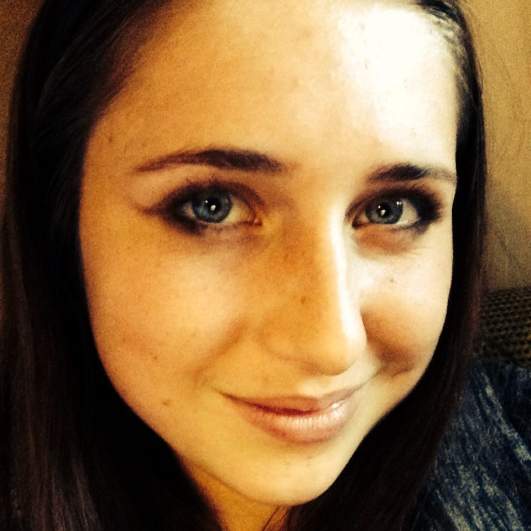
FacebookLauren McCluskey
Lauren’s mother says, “I thought she might have been in a car accident. That was the last I heard from her. My husband called 911. I kept the line open and in a few minutes, a young woman picked up the phone and said all of Lauren’s things were on the ground.”
In the family’s lawsuit, the parents allege that the university failed to protect Lauren.
“Despite the fact that Lauren and fellow students contacted the University of Utah more than 20 times to report Melvin Rowland’s abuse and did everything that they could to obtain help with regard to their concerns of escalating violence, the University and the Individual Defendants failed to take any action reasonably calculated to end the abuse and prevent its reoccurrence or to otherwise investigate the allegations, thereby acting with deliberate indifference and subjecting Lauren to further and ongoing abuse,” the family’s lawsuit says.
The lawsuit claims that Lauren’s death :arose from a set of circumstances that should have alerted the university and Individual Defendants to the fact that one of their students was in extreme peril of being seriously harmed or killed as a result of domestic violence or dating violence.”
“In addition,” says Lauren’s family, “to direct reports of domestic violence and dating violence, the classic warning signs of such behavior were repeatedly reported to the University, but no investigation occurred, no plans were developed or implemented and no effort was made to take any meaningful action reasonably calculated to end the harassment or to otherwise prohibit Melvin Rowland from having ongoing
access to the University’s campus.”
The family further alleges that the Department of Housing failed to contact Lauren with regard to the allegations of harassment, stalking or the other warning signs of potential abuse, it failed to otherwise investigate the matter or gather more information, it failed to contact Lauren and provide her with safety options and resources, it failed to contact or coordinate with other University departments or organizations, it failed to take action required by University of Utah policies and procedures and it otherwise failed to take any meaningful action to address the situation and ultimately prevent Lauren’s murder.”
The lawsuit also excoriates the university’s public safety department. “UUPS failed to investigate whether Melvin Rowland was on parole, failed to attempt to make contact with Melvin Rowland or with anyone who might have information about him, failed to make any attempt to determine whether Melvin Rowland was behind the harassment and extortion, failed to acknowledge that Melvin Rowland had committed or attempted to commit crimes in addition to the extortion, failed to use any reasonable means to protect Lauren, failed to formulate or implement any plan to prevent further abuse and failed to describe the rights and remedies available to Lauren as required under the Cohabitant Abuse Act,” the lawsuit alleges.
“In fact, rather than investigating the allegations against Lauren and treating them with the urgency that they deserved, the detective in charge of Lauren’s case went on vacation and returned to find that Lauren had been murdered. Despite the fact that the detective instructed Lauren to send her information, none of the information that Lauren sent was forwarded to an officer or detective who was on-duty.”
The McCluskey parents said in a news conference that they believed they had to file a lawsuit to get better campus safety for others. The university said in a statement that it would answer the lawsuit in appropriate channels, according to the Salt Lake Tribune, which quoted President Ruth Watkins as saying, “While there are differences in how we would characterize some of the events leading to Lauren’s tragic murder, let me say again that we share the McCluskey family’s commitment to improving campus safety.” An independent review previously outlined concerns in how Lauren’s safety issues were addressed by the university.
4. Lauren McCluskey Was a College Athlete & State Champion High Jumper
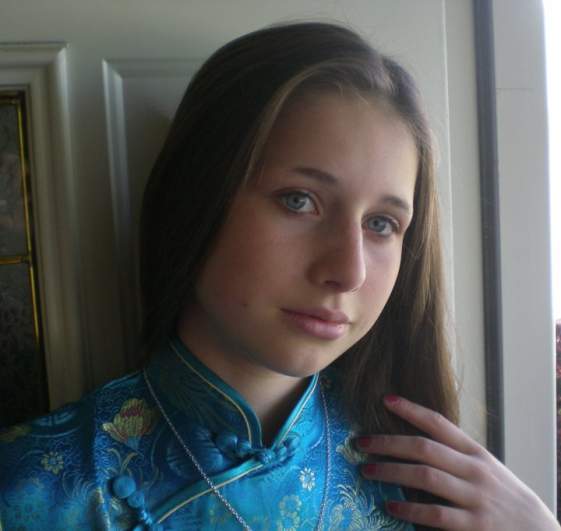
FacebookLauren McCluskey
Lauren McCluskey had everything going for her before she crossed paths with Melvin Rowland; she was a good student and an athlete who held records in her state and high school.
“Lauren was a senior student athlete on the University of Utah track team. She was an outstanding student with a 3.75 GPA majoring in Communication and was excited to graduate in May 2019,” her mother wrote in the statement released to the media. “She was a 2015 honors graduate of Pullman High School where she was Washington state champion in the high jump and the school record holder in the 100 meter hurdles. She attended Capital Church in Salt Lake City. She loved to sing and had strength and determination. She was dearly loved and will be greatly missed.”
According to the Salt Lake Tribune’s Courtney Tanner, “U. Police Lt. Brian Wahlin says the suspect is Melvin Rowland. Rowland and the woman reportedly had ‘a dispute’ before the shooting. She was found inside a car outside the dorms.”
“U of U ALERT: Shooting on campus. Secure-in-place. More info to come,” U of U initially wrote on Twitter. This tweet was followed by a suspect description: “Suspect: Black male, 37 years old, 6’3″, 250 lbs, wearing a gray beanie, black pants, white shoes and a white hoodie. He was last seen on foot leaving NB from the medical towers.”
The university also tweeted, “Shooting suspect still on foot. Secure-in-place. Updates on http://highalert.utah.edu . Next update 11p.”
Gephardt Daily reported that the victim was a female who was “found in the parking lot with multiple gunshot wounds and is deceased.” The shots were fired around 9 p.m., the news site reported.
The Salt Lake Tribune reported that police were surrounding one specific vehicle.
The university sent out an emergency alert titled “shooting on campus.”
5. People Expressed Fear on Social Media in the Shooting’s Aftermath
The shooting of the well-liked track standout has shaken the campus community, which was already traumatized by the shooting death of another student a year ago.
One Twitter user wrote, “all my friends at the U, stay safe and stay in place. for anyone not at the U, this is the second shooting in less than a year there and every time I’m scared to death that the victim is one of my friends. I hope you don’t ever have to feel this way.”
“Last year I was a senior in high school, and heard about the shooting… Today I’m a freshmen at the #UniversityOfUtah and I’m on lockdown… I really hope it doesn’t become a tradition,” wrote another student.
In 2017, a student was killed and a massive manhunt was underway after a shooting at the University of Utah on October 30. The victim was Chinese national ChenWei Guo, a computer science student.
This article is being updated as more information is learned about the 2018 shooting.
READ NEXT: Crime Scene Photos in Steven Avery/Teresa Halbach Case & Murder
